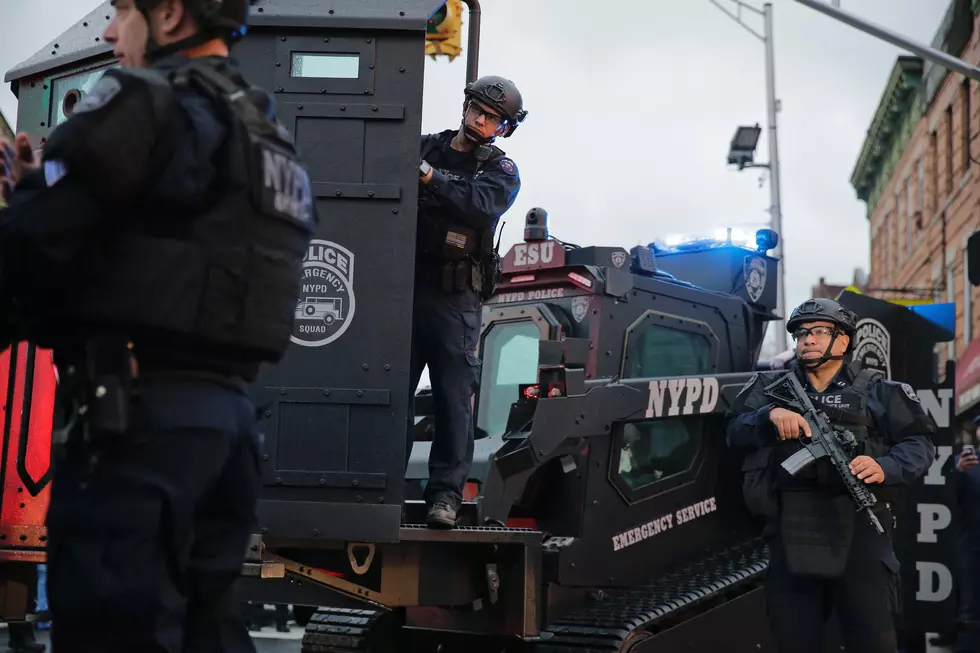
Joint Chiefs nominee says he will assess strategy against IS
HAMPTON, Va. (AP) -- The Marine general nominated to be the next chairman of the Joint Chiefs of Staff says the U.S. and its coalition partners are making moderate progress in the fight against the Islamic State extremist group but that the strategy should be re-evaluated if efforts to improve governance and build reliable local ground forces stall.
Gen. Joseph Dunford says that if he is confirmed by the Senate he also wants to assess whether the U.S. should focus more on the Islamic State group's "shifting geographic reach" and confront the militants where they are now and where they are most likely to go in the future.
A hearing on the nomination of Dunford, the commandant of the Marine Corps, is slated for Thursday before the Senate Armed Services Committee. His written answers to a broad range of national security questions posed by the committee were obtained by The Associated Press.
The 75-page questionnaire included a number of queries about whether the White House strategy is working in the battle against the Islamic State group in Iraq and Syria. A number of senators, including Sen. John McCain, R-Ariz., the panel chairman, voiced sharp criticism during a hearing earlier this week, as they grilled Defense Secretary Ash Carter and the current Joint Chiefs chairman, Gen. Martin Dempsey, on the status of the fight.
During the hearing, Carter acknowledged that the U.S. has only 60 trainees in a program to prepare and arm thousands of moderate Syrian rebels in the fight against IS militants. That topic is sure to come up Thursday, as lawmakers press Dunford for answers on how more progress can be made.
Dunford was largely cautious in his written responses, repeating the often-heard U.S. contention that some progress is being made against IS but that challenges remain in what promises to be a long fight.
Asked what changes he would make to the strategy, Dunford said he wants to evaluate the effectiveness of the training and equipping programs to see if there are ways to make them more effective.
About 3,300 U.S. forces are training and advising the Iraqis, and the Obama administration is limiting the number of American troops in Iraq to about 3,550.
The Iraqi military, which was equipped and trained by the United States, has struggled to recover from its collapse a year ago when IS militants captured the country's second-largest city, Mosul, and swept over much of northern and western Iraq.
Since then, IS has seized control of Ramadi, the capital of Anbar province in western Iraq, and other key terrain in the region. The loss of Ramadi, Dunford said, was a tactical setback that shows how agile and adaptive IS has become. But he said the U.S. military and the Iraqis have learned from that loss.
In the questionnaire, Dunford repeatedly says he will take time to assess the programs and promised that one of his first trips, if confirmed, would be to Iraq and the region.
Asked if the number of U.S. troops in Iraq is adequate, Dunford said is it enough but that, "as conditions change on the ground, it may become necessary to adjust how we implement the military campaign."
More broadly, Dunford expresses deep concern about the effects of continued budget cuts on the military, particularly as complex security threats expand to include challenges from Russia, China, Iran and North Korea along with counterterrorism fights across the Middle East and Africa.
"I am concerned with the readiness of the force today and I believe we need to review the capabilities and capacities that will be needed to meet future security challenges," Dunford says.
Dunford, who until last year had been serving as the top U.S. commander in Afghanistan, also says that he is willing to recommend changes in the size and pace of the troops withdrawal in that country if security conditions get worse.
He notes that as Afghan forces assume full responsibility for their nation's security and coalition air support there declines, there will likely be a greater demand for other U.S. support including intelligence gathering, airlift and casualty evacuations.
(Copyright 2015 The Associated Press. All rights reserved. This material may not be published, broadcast, rewritten or redistributed.)
More From New Jersey 101.5 FM









